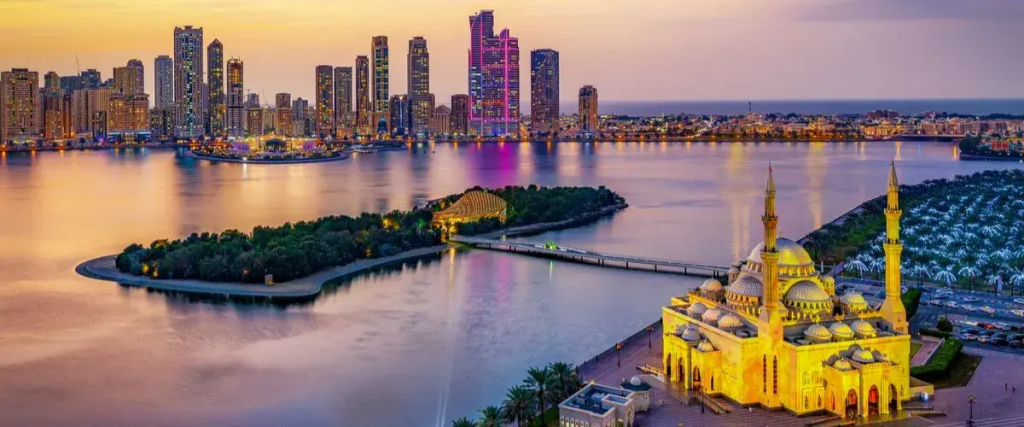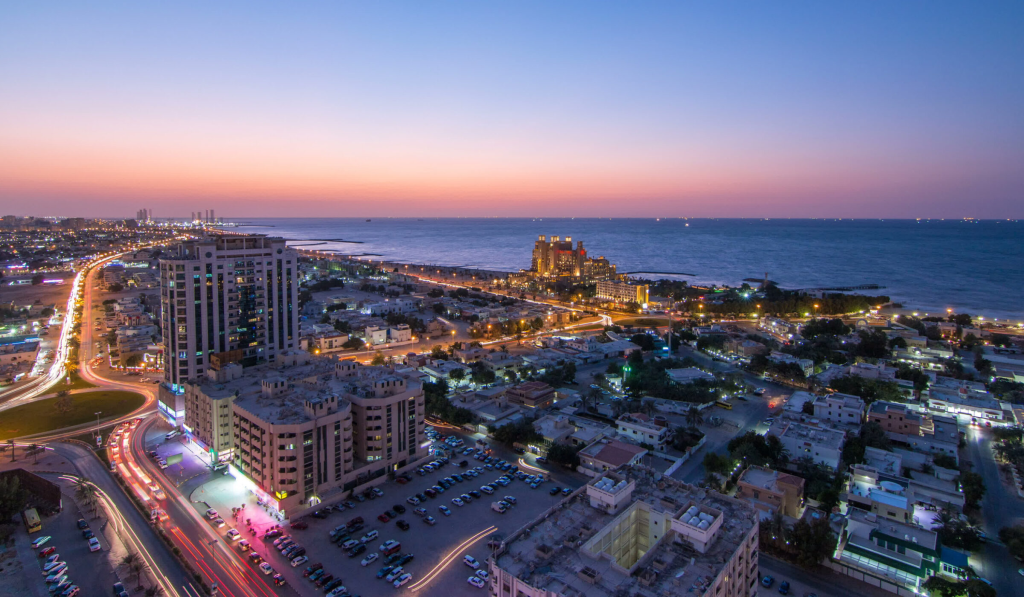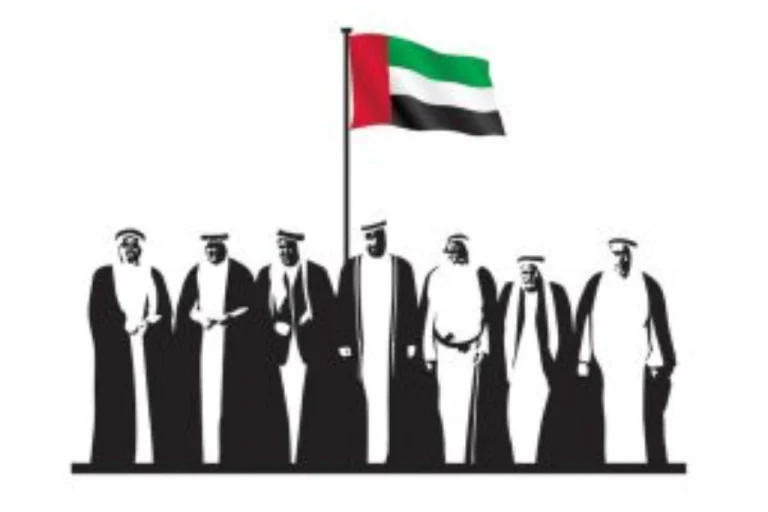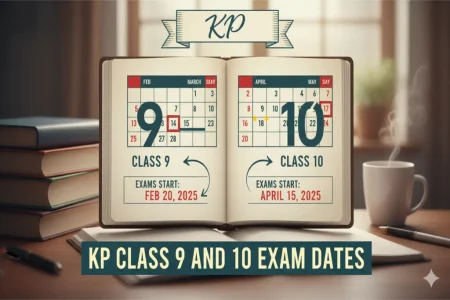When people talk about stable countries in the Middle East, the UAE usually tops the list. And there is a very unique reason behind it. You know what, its governance system. The United Arab Emirates, unlike most of the countries in the world, is governed by seven ruling families. All these emirates work under one united flag that’s why we call it the United Arab Emirates.
The UAE’s stability isn’t luck — it’s the result of a unique system, a shared history, and leadership that looks ahead.
Seven Rulers, One Nation: The UAE’s Unique Power Structure
As we know that seven emirates of the UAE are ruled by seven royal families. These families are historically linked by the Bani Yas confederation and they are working in the same cooperative style.
They form a federal system where key national decisions are made together. This setup is called the Federal Supreme Council, where all rulers sit down to discuss and agree on policies that affect the whole country.
This is a traditional system of monarchies blended with modern federal cooperation and governance.Unlike many countries in the region, the UAE has avoided political chaos for more than five decades. Since its formation in 1971, it hasn’t seen any military takeovers or uprisings — a rare level of internal stability. Interestingly, a large majority of people living there — over 88%, based on government statistics — say they trust the leadership and how the country is being run. According to the IMD World Competitiveness Ranking, the United Arab Emirates is among the global top 10 government efficient countries in the world.
Different Emirates, Different Strengths — But One Shared Vision
One of the UAE’s biggest strengths is that it doesn’t run everything from just one place. Each emirate has its own leadership, its own projects, and even its own priorities. But all of them are working toward a common national vision — and that’s what makes the UAE’s system both flexible and strong.
Abu Dhabi At a Glance
| Category | Details |
| Leadership | Sheikh Mohamed bin Zayed Al Nahyan |
| Political Role | Capital of the UAE and hosts the Federal National Council |
| Economic Strength | Holds around 90% of oil reserves of UAE |
| Key Assets | ADIA ($993 billion sovereign wealth fund SWFI 2024), ADNOC a national oil company, Mubadala and Masdar City |
| Modern Initiatives | Investments in clean energy, defense industries, AI, smart cities |
| Safety | Ranked among top 20 safest cities globally |
| Heritage | Sheikh Zayed Grand Mosque, Louvre Abu Dhabi, Qasr Al Hosn |
| Strategic Projects | Etihad Rail, Zayed Sustainability Prize, Barakah Nuclear Power Plant, Vision 2030 |
| Global Standing | Active in diplomacy, peace-building and climate diplomacy |

Dubai At a Glance
| Category | Details |
| Leadership | Sheikh Mohammed bin Rashid Al Maktoum |
| Political Role | Hosts key federal bodies; second most influential emirate |
| Economic Strength | trade, tourism, real estate, finance and logistics |
| Key Assets | Burj Khalifa, Dubai International Airport, Jebel Ali Port, Dubai Financial Market, Emirates Airlines |
| Tourism | 18.72 million international visitors in 2024, 5.31 million in Q1 2025 |
| Aviation Hub | DXB handled around 92.3 million passengers in 2024, again #1 busiest airport globally |
| Hospitality Stats | 154,016 hotel rooms across 832 properties; average occupancy around 78% |
| Digital Leadership | Ranked 1 in MENA and ranked 11 globally for digital competitiveness (IMD World Ranking 2024) |
| Safety & Cleanliness | Among top 5 safest cities (Numbeo Safety Index 83.7), #1 globally for cleanliness (GPCI) |
| Events & Culture | Hosts GITEX (200,000 attendees), Gulfood, ART events; 2.7 million participants in Dubai Fitness Challenge 2024 |
| Strategic Projects | Expo 2020 legacy; D33 Agenda; Al Maktoum Airport expansion to 260 M capacity; Blue Line Metro; Dubai Metaverse and 2040 Master Plan |
| Global Standing | Asia’s top remote-working city (#1 Exec Nomad 2024); #1 tourism FDI in H1 2024 |

Sharjah At a Glance
| Category | Details |
| Leadership | Sheikh Dr. Sultan bin Muhammad Al Qasimi (Ruler; member of UAE Supreme Council) |
| Cultural Role | Known as the UAE’s cultural heart — UNESCO’s Arab Cultural Capital (1998) and World Book Capital (2019); recently added the Faya Palaeolandscape UNESCO site |
| Tourism | 1.6 million hotel guests in 2024 (+11% vs. 2023); Q1 2025 saw ~486,000 visitors (+13%) |
| Visitor Demographics | Russia: 270k (+18%); India: 170k (+6%); Europe: 100k (+16%); China: 60k (+828%) |
| Eco & Heritage Sites | Heart of Sharjah restoration (completion by 2025) ; Sharjah Safari (12,000 ha wildlife park launching 2024) |
| Events & Festivals | 16th Sharjah Biennial (200 artists, 17 venues, runs till June 15, 2025) ; Sharjah Light Festival across 13 landmarks |
| Literary Highlights | Sharjah Book Fair draws 470 publishers from 75 countries with high reader spending; Book Authority supports vibrant literary culture |
| Infrastructure | 100+ hotels (~10,000 rooms); growth in ecotourism sites like Al Heera beach, Wasit Wetlands |
| Economic & Strategy | Tourism revenue ~AED 2.5 billion (10% GDP); Visit Sharjah campaign focuses on “culture + adventure + nature” |
| Global Standing | 2nd UAE UNESCO site (Faya), eco cultural hub |

Ras Al Khaimah At a Glance
| Category | Details |
| Leadership | Sheikh Saud bin Saqr Al Qasimi |
| Tourism Performance | 1.28 million overnight arrivals in 2024 — a 12% increase in tourism revenue and a 15% rise in MICE visitors; first destination in MENA to receive EarthCheck Sustainable Destinations Silver Certification; targets 3.5 million visitors by 2030 |
| Business & Economy | Ras Al Khaimah Economic Zone (RAKEZ) added 13,141 new companies in 2024 |
| Connectivity | Direct flights in 2024 from cities including Moscow, Tashkent, Warsaw, Jeddah, and Hyderabad |
| Hospitality Growth | New resorts opened: Sofitel Al Hamra Beach Resort and Anantara Mina Al Arab with the first overwater villas. Several international brands expanding on Marjan Island in 2024–2025 |
| Events & MICE | 15% growth in MICE visitors; hosted events like RAK Half Marathon, Arab Aviation Summit, Global Citizen Forum; set Guinness-record drone New Year’s Eve displays |
| Sustainability Awards | RAKTDA’s sustainability programme named ‘Middle East’s Most Sustainable Project’ at Forbes Middle East 2024; EarthCheck Silver certified; initiatives like Responsible RAK |
| Expat Appeal | Ranked among top 10 cities worldwide for expats to start & work (InterNations City Ranking 2024) |
| Infrastructure Plans | Ongoing development of Wynn Al Marjan Island resort (1,500-room, gaming, dining, events) — due by 2027; expansion of AI traffic systems and smart-city connectivity reported in recent plans |

Fujairah At a Glance
| Category | Details |
| Leadership | Sheikh Hamad bin Mohammed Al Sharqi |
| Tourism | ~733 k hotel guests in 2022, rising to ~784 k in 2023; Q1 2024 saw ~349 k (consistent growth) |
| Eco-Heritage Focus | Plans to attract 500 k visits to archaeological sites; 113 k visits recorded in 2022 ; UNESCO recognition via UNWTO Sustainable Tourism as of late 2023 |
| Natural Attractions | Wadi Wurayah: 12 700 ha protected Ramsar wetland, home to Arabian tahr and endemic species ; long beaches, coral-rich Snoopy Island popular with divers |
| Business & Trade | 22% GDP from industry (2024); ~22 k business licences issued; ~AED 2 b in trade imports in 2023 |
| Connectivity | 22% increase in flights via Fujairah International Airport (2023); new IndiGo route Mumbai–FJH launched May 2025 |
| Infrastructure & Vision | Fujairah Plan 2040 guides growth, expects population to rise from ~300 k to 500 k by 2040 |
| Free Zone & Industry | Fujairah Creative City supports 2 000+ digital/media companies; EDB launched “EDB Connect Fujairah” in Dec 2024 to help SMEs in manufacturing, renewables, food security, healthcare |
| Lifestyle & Quality | Slower-paced, family-friendly emirate; cheaper rents, local cuisine favorites (per expat stories) ; water sports, hiking, and cultural tourism are top draws |

Ajman At a Glance
| Category | Details |
| Leadership | Sheikh Humaid bin Rashid Al Nuaimi |
| Economic Focus | Known for real estate, construction, ports, SME growth, and industrial output; strong local business environment supported by Ajman Chamber and Free Zones |
| Business | Over 63,000 active business licenses issued in 2024 (Ajman DED Annual Report 2024) |
| Industrial Contribution | Ajman’s industry sector accounts for 34% of its GDP — one of the highest among smaller emirates; major producers in garments, furniture, and paper |
| Free Zone Success | Ajman Free Zone hosts over 9,000 companies; offers digital incorporation and affordable licenses — especially popular with South Asian entrepreneurs (Ajman Free Zone site) |
| Ports & Logistics | Ajman Port handles over 1,000 vessels annually |
| Tourism | Affordable beachside resorts, Ajman Corniche, Ajman ranked #1 in UAE for apartment rental yield in Q1 2024 |
| Digital Economy | Ajman Pay processed over 8.1 million transactions in 2024, supporting government digital transformation and smart services |
| Cultural & Education | Hosts Ajman University and Ajman Museum; Ajman Vision 2025 |
| Living Quality | ranked high in work-life balance satisfaction surveys (local expat reports 2024) |

Umm Al Quwain At a Glance
| Category | Details |
| Leadership | Sheikh Saud bin Rashid Al Mualla (Ruler; UAE Supreme Council member) |
| Strategic Focus | famous for its natural coastline, sustainable agriculture, aims to become a center for marine economy and eco-tourism |
| Business Environment | Umm Al Quwain Free Trade Zone (UAQ FTZ) saw 22% growth in 2024 |
| Tourism | Al Sinniyah Island and mangrove-rich Khor Al Beidah |
| Agricultural Innovation | UAQ Department of Agriculture initiated vertical farming pilots in 2024 to address food security and water conservation goals — part of UAE’s broader 2031 sustainability agenda |
| Ports & Trade | UAQ Port and Ahmed Bin Rashid Port serve coastal trade, fishing, and inter-Gulf logistics; development plans announced to modernize port infrastructure and increase capacity |
| Living & Affordability | UAQ remains the most affordable emirate for residential living and land investment — attracting young families, freelancers, and retirees seeking calm, coastal life (Bayut Q1 2024 UAE report) |
| Education & Workforce | Growing vocational training programs, especially in marine sciences and food manufacturing; new training centers opened in partnership with UAE’s 2024 Skilled Workforce Strategy |
| Culture | UAQ Museum (restored 18th-century fort), dhow building heritage |

At a time when the world faces fragmentation and uncertainty, the UAE offers something rare: a united vision through diverse strengths. It’s not just a political success. It’s a global case study in stability, and a legacy still being written by seven dynasties, under one flag.
Also read this: A Thriving Financial Ecosystem : Why Millionaires Keep Choosing the UAE







